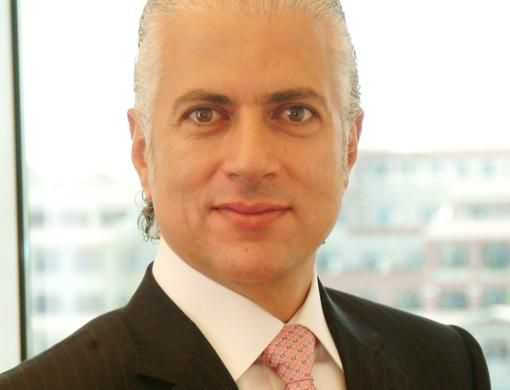For Simon Azzam, chief executive of Union Properties (UP), the growth curve of Dubai's property market has a long way to go before it reaches its peak.
"Dubai's housing market is still at its infancy and it is very early to predict 'a bubble burst'," he told Gulf News.
One of five people who launched UP almost 20 years ago, Azzam has seen the spurt of construction activity in the booming emirate and his company grow to become a leading developer.
He says there will be growing need for more real estate development in Dubai and the time for a declining trend of property price has not come yet.
UP, which was worth Dh1 million at the time of establishment, has recorded an unprecedented growth in assets in the past 20 years. Now, the total value of its shares exceed Dh3.8 billion.
The company boasts "green community" as its trade mark.
Lacking sophistication
In Azzam's view, Dubai's young market suffers a lack of sophistication. Studies on the property market are still rare or lack the depth required to forecast trends, he says. "This depth will come in the coming years as they [studies] will be in high demand.".
But even this doesn't seem to be the immediate problem. "Now, the demand for different types of properties is still very high, and thus the need for a variety of products is below what the developers can offer. In future, developers will definitely need to know more information about the market," he says.
The future need, according to Azzam, is to have exact statistics, for example, of the need of office units, hotel rooms, etc. This scientific approach will replace the reaction of developers to market demand.
"The lack of transparency might result in excess production of certain types of units in the market," he warns.
While he rules out the idea of the market suffering a bubble burst, he warns that saturation might come as a result of misinterpretation of some indicators in the market.
"For instance, the market has started to appreciate the difference in quality and developers will soon find themselves not being able to sell anything at any price. This is a positive development, and we have to reinforce it," he says.
"There will be a balance at some stage in the market, and a fair grading of apartments and properties based on their quality, location, culture etc. will eventually become the norm in the market. What is happening now is more of a mismatch; all apartments on offer are going out at the same price regardless of specifications other than their area. This is wrong, and is not going to last," he adds.
According to him, the real estate industry is currently undergoing phenomenal changes and the services offered by developers and property management companies will distinguish them in the the future.
"Property users, whether they were owners or tenants will become powerful, and dictate their needs on managements" he says.
"The phenomenon of overpricing and over promising will vanish soon. It will become difficult for a developer to sell his property at a price higher than its actual value. Certain areas in Dubai - based on location, culture and services - will be appreciated better in the market and properties in such areas will get extra points by customers," he adds.
Quality matters
Moreover, developers will need to invest in the building materials they are using. Their reputation and image will be judged very much on the durability and functionality of their projects, so the price of their properties will depend mainly on their history in the market, according to Azzam.
So is it a good time now to buy in Dubai? Azzam's answer is that purchasing a property in Dubai is still considered cheap compared to other markets.
"The market has not stabilised yet and there could be a regulating process of prices in different areas," he says.
While he believes that Dubai has a shortage in villas since they are in high demand, the apartments market suffers from a mismatch.
However, Azzam sees the market on the path of continuous development, which comes in line with Dubai's sky high ambition to the become the number one city in the world with greater emphasis on environment issues.
"There are parameters that are set by the government. Developers like UP have to work within those parameters. If we ask whether we have achieved the goal of becoming the number one city in the world and exploited technologies that focus on energy saving and protection of the environment, the answer is we are still at early stages and we have a long way to go," says Azzam.













